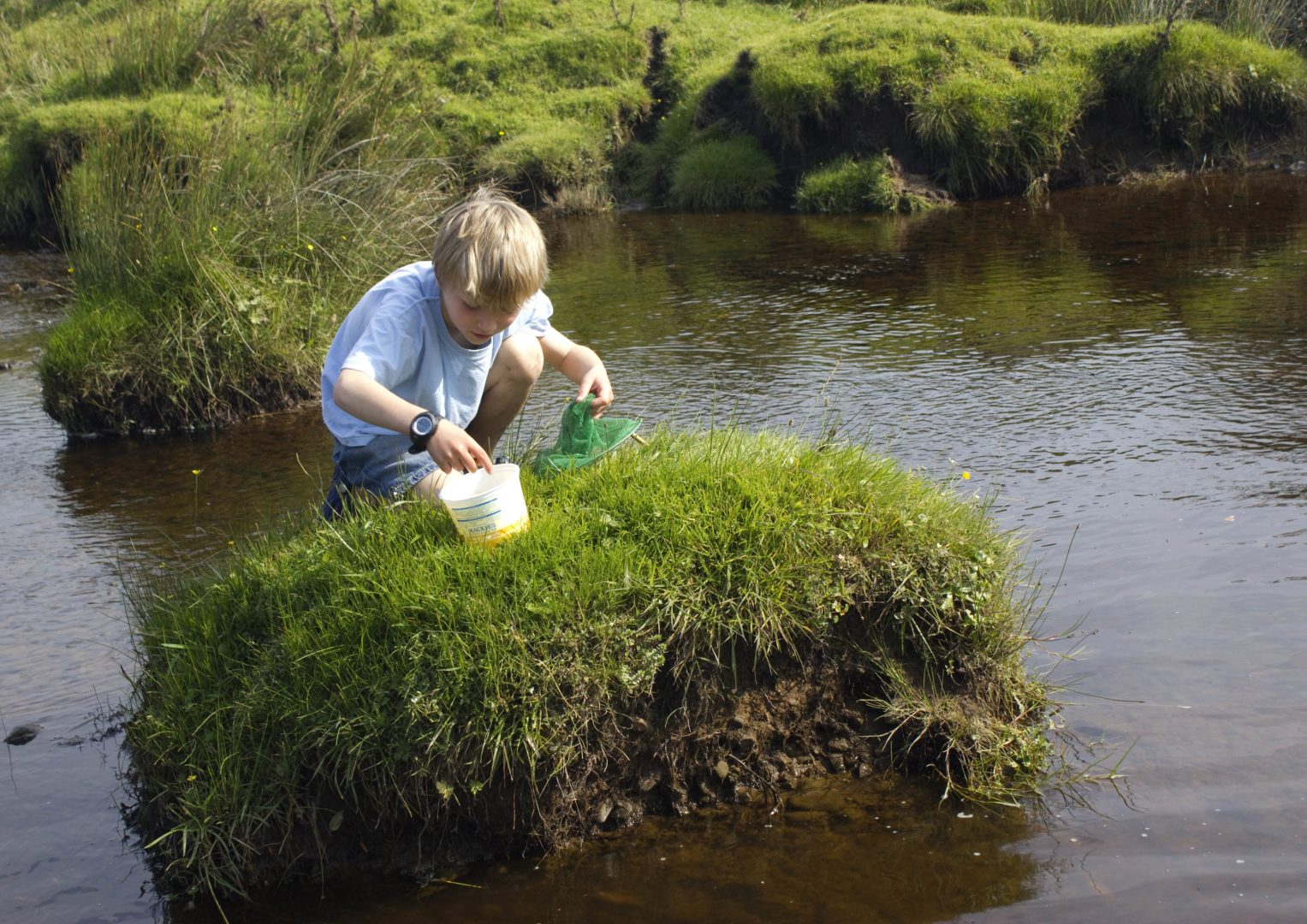Countryside school visits and nature studies could secure parent vote, says CPRE

Children’s author Michael Morpurgo supports call to include countryside access for every school child in the national curriculum
With the climate emergency high on the general election agenda, a survey by CPRE, the countryside charity, has revealed that 96% of parents think it is important for children to experience green spaces first-hand and spend time in the natural world. [1]
Findings reveal that political parties could harness ‘parent power’ to get them over the finishing line at the forthcoming general election by making it mandatory for every school child to visit the countryside, as part of the national curriculum.
The survey of 2,000 parents across England, carried out by OnePoll, and commissioned by CPRE, reveals that:
- 85% of parents in England think that every schoolchild should be able to experience the countryside first-hand as part of the national curriculum;
- 96% think it is important for children to spend time in the natural world, including the countryside (with 69% saying this is very important and 27% saying it is quite important);
The top five reasons cited by parents for why children should spend time in nature were:
- Boost physical health (74%)
- Learn more about nature and science (74%)
- Boost their mental health (70%)
- Experience the thrill of observing wildlife first-hand (65%)
- Understand why we should protect the countryside (64%)
Separate research by CPRE shows that 36% of England’s population live too far from the current network of 10 National Parks and 34 AONBs for these areas to be classified as easily accessible. [2]
CPRE has included improved access to green spaces for everyone in their 12 recommendations for how the next government can harness the potential of the countryside to promote a healthier economy and happier communities. [3]
Children’s author and co-founder of Farms for City Children Michael Morpurgo, and business woman and environmentalist Emma Bridgewater have added their voices to this call to action. They would like to see the next government make sure that everyone, including every schoolchild, has access to national parks and Areas of Outstanding National Beauty (AONB).
Michael Morpurgo, author and co-founder of Farms for City Children, said: ‘It should absolutely be part of every child’s life to walk the fields and forests, stomp through leaves, up hills, through rivers, to see buzzards floating high and mewing, to glimpse a fish jumping, to feel wind and cold, to see a sheep give birth, a cow give milk, to plant potatoes, dig potatoes, to look up on a dark night and see the stars, to hear silence. How good is that for us, to know that this world is beautiful and that we are part of it.’
Emma Bridgewater, President of CPRE, the countryside charity, said: ‘Younger people are leading the way in changing the way we treat our planet. Programmes like Blue Planet have done so much to raise awareness of the need to recycle and have succeeded in building awareness of the impact of climate change among children and young people.
‘But we all have a responsibility to continue to support children on their journey towards making our world truly sustainable. We have many amazing green spaces on our doorstep, which benefit everyone in so many ways – by improving their mental health, physical wellbeing through the ability to experience nature first-hand. What is needed is decisive action from the next government that will ensure all children can access these treasured areas and green landscapes.’
Crispin Truman, Chief Executive of CPRE, the countryside charity, said: ‘The climate emergency is high on the political agenda and yet the recently-published political party manifestos suggest that policy makers have failed to recognise how experiencing nature directly links with the desire and will to combat the climate emergency. The research also shows that parents see the countryside as good for children’s health and well-being.
‘CPRE therefore urges the next government to introduce measures to improve access to the countryside for all, including the 30 million who have the Green Belt on their doorstep, so our green spaces can be a focal point for experiencing, learning about and investing in our environment.’
Notes to editors
- This online survey of 2,000 English adults (who are parents) was commissioned by CPRE and conducted by market research company OnePoll, in accordance with the Market Research Society’s code of conduct. Data was collected between 8 November 2019 and 13 November 2019. All participants are double-opted in to take part in research and are paid an amount depending on the length and complexity of the survey. This survey was overseen and edited by the OnePoll research team, who are members of the MRS and have corporate membership to ESOMAR. A regional breakdown of statistics by age, gender and region is available on request.
- CPRE’s mapping, created by LUC, investigates how accessible the current network of National Parks and AONBs are to people, both in overall proximity and within a 15 mile catchment area.
The research shows that 64% of England’s population lives within 15 miles of a protected landscape, leaving 36% of the population outside of the catchment. The results show that there are significant gaps – particularly the area between Leicester, Grantham, Stamford and Kettering – this area is the furthest distance from any protected landscape in England.
The maps were commissioned as evidence for an independent review of National Parks and AONB last year (the Glover review).
3. CPRE’s manifesto is available here.



